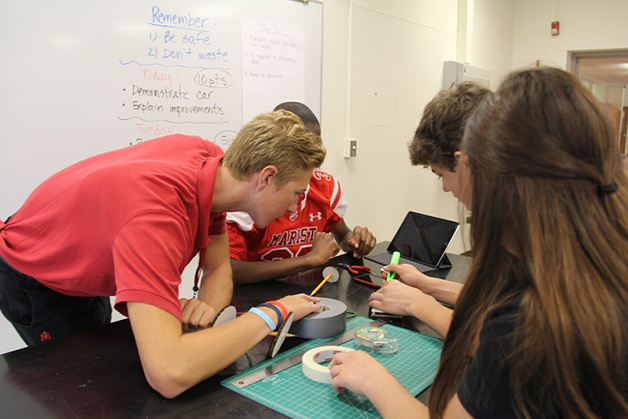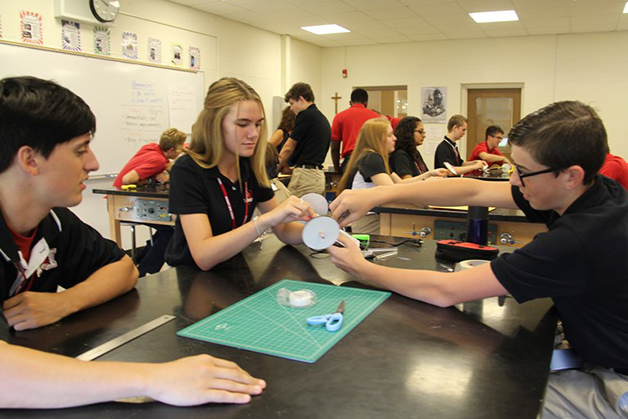Engineer Your World
Academics
Engineer Your Word Course
Marist introduced the Engineer Your World course for the 2019-2020 school year. The two-semester class is a hands-on experience for students who want to learn about engineering and its role in shaping our world.
Students work in small groups on authentic engineering practices in a project-based learning environment and complete a series of socially relevant design challenges to develop engineering design skills and habits. Collaborative, student-directed projects build resilient problem-solving skills and empower students to think like engineers, to adopt engineering processes, and to pursue engineering disciplines for the betterment of our world.

Course Focus
The class implements the curriculum designed by the University of Texas at Austin, which is where Marist teachers Tracy Carlson and Ryan Doidge ’09 attended a two-week training program in preparation of teaching the course. Carlson worked as an industrial engineer at Reynolds Aluminum Company for 14 years prior to becoming a teacher, and Doidge is a trained architect.
The course focuses on teaching students engineering habits and learning the importance of thorough documentation. During the year, students will delve into mechanical, biomedical, chemical, civil, electrical, software, and aerospace engineering. The course is open to all grade levels, and student teams are created based on personality surveys. As for the mix of grade levels, freshman Braden Bartecki said it works out because the content is new to everyone.
Benefits of The Course
Senior Augustino Pannarella said what drew him to the class was the opportunity to work hands-on and in a group. Students have to rely on each other to figure things out, and that’s a goal that’s important to Doidge. “I don’t want them to look to me for the answer,” he said. “I want them to look to each other even if that means they have to fail in the first attempts to find the solution.”
Classmate Olivia Arp ’22 said she’s thinking about a career in the medical field, but because she loves math she thought engineering might be a good match, too. That’s one of the benefits of the course: exposing students to realistic professional experiences. Carlson thinks that’s important. “Given the cost of college, I think we should do as much as we can to expose students to different careers in high school so that they can make informed decisions about their college majors,” she said.
Other courses at Marist offer students the opportunity to work in robotics, app building, architectural drawing, and more.

